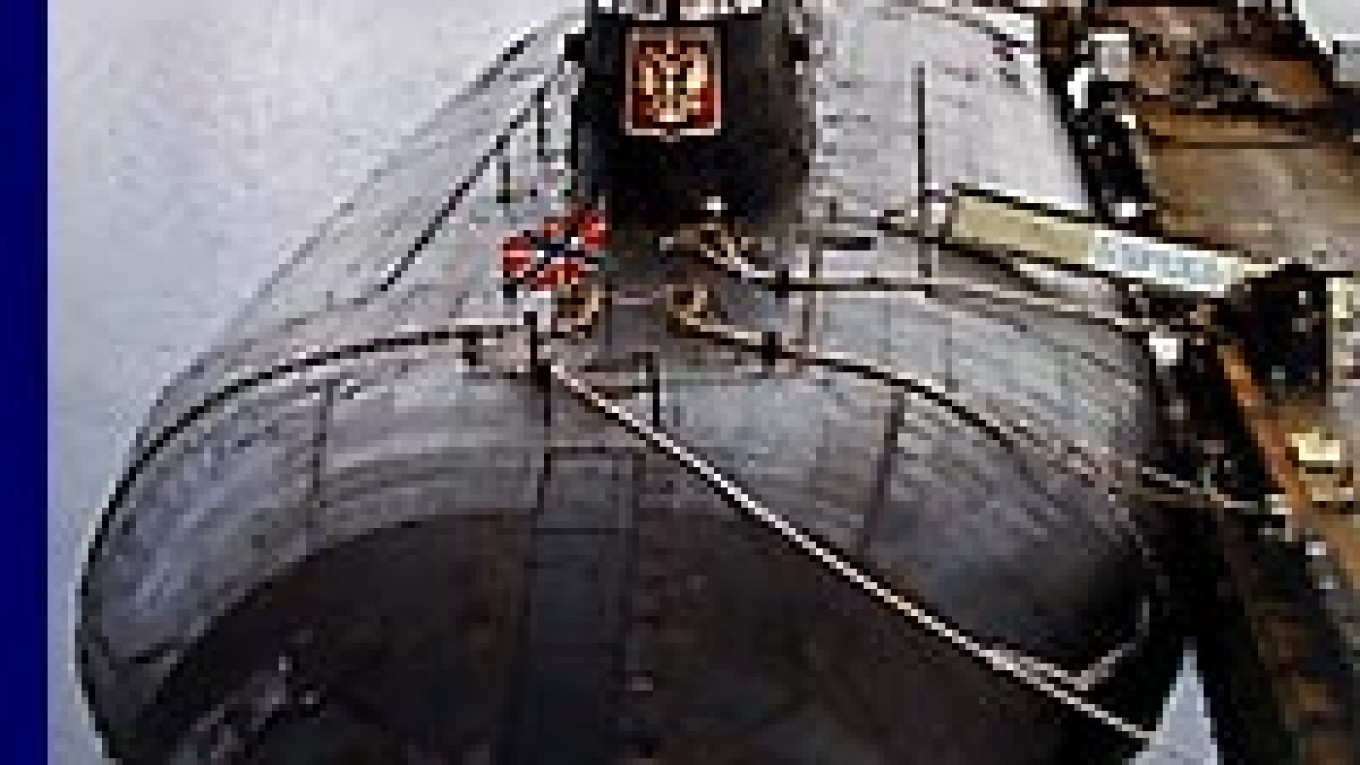Under the contract, signed in St. Petersburg by Halliburton AS and Russia?€™s Rubin military design bureau, Halliburton will train and assist Russian divers in the retrieval of the Kursk crew.
The Kursk was shattered by an explosion and sank during naval exercises in the Barents Sea on Aug. 12. The submarine now lies 108 meters below the sea surface.
Rubin director Igor Spassky said that the need for foreign help in the operation pointed to a deficiency in the Russian submarine program.
"The preparations for this operation have shown that, over the last 10 to 12 years, we have paid too little attention to submarine technologies," he said.
Spassky said Rubin had discussed the rescue operation with eight firms before reaching the agreement with Halliburton.
Both Spassky and Halliburton AS officials Monday refused to release the financial details of their agreement.
Birgir Haralldseid, communications manager for Halliburton AS, said that the company?€™s divers would leave Wednesday from Norway for the Barents Sea. The voyage would take about 10 days, he said.
Upon their arrival, six Norwegian divers will train 12 Russian divers on the techniques and equipment to be used for the retrieval.
Haralldseid said the duration of the training would depend on the learning skills of the Russian divers.
"To ensure a safe operation is the main concern," he said.
The Russians will then be lowered to the sub, while the Norwegians will be monitoring the operation from a diving bell. The divers will retrieve the bodies and load them into a container, which will be lifted to the surface and transferred to a Russian ship.
The divers will cut seven holes in the hull of the Kursk to enter the boat, Spassky said.
Spassky said it would be impossible to bring back all the remains because most of the vessel?€™s compartments were destroyed in the Aug. 12 explosion.
Russia decided to go ahead with the retrieval even as the dead seamen?€™s relatives pleaded to postpone the operation and scientists warned that the retrieval is dangerous.
Alexander Nikitin, an environmentalist and nuclear fleet specialist, said the cuts made in the boat during the recovery are likely to cause the nuclear submarine to fall apart when it is raised next summer.
Last week, 78 relatives of the dead crew signed an open letter to President Vladimir Putin to delay the recovery because they did not want more men to "risk their lives."
The circumstances leading to the Kursk?€™s sinking remain unknown. Deputy Prime Minister Ilya Klebanov, who heads the investigation into the accident, has identified three possible causes: an explosion on board the submarine, a collision with another vessel, and a collision with a World War II mine.
Halliburton AS is a subsidiary of the Texas-based Halliburton, which was until recently run by Dick Cheney, George W. Bush?€™s running mate in U.S. presidential elections this fall.
Cheney had a long history of working in Russia and throughout the former Soviet Union. Last year, he lobbied for a $489 million loan from the Export-Import Bank of the United States for Tyumen Oil Co. ?€” even though TNK was at the time accused of violating shareholders?€™ rights and U.S. Secretary of State Madeleine Albright was declaring the proposed deal a violation of national security.
A Message from The Moscow Times:
Dear readers,
We are facing unprecedented challenges. Russia's Prosecutor General's Office has designated The Moscow Times as an "undesirable" organization, criminalizing our work and putting our staff at risk of prosecution. This follows our earlier unjust labeling as a "foreign agent."
These actions are direct attempts to silence independent journalism in Russia. The authorities claim our work "discredits the decisions of the Russian leadership." We see things differently: we strive to provide accurate, unbiased reporting on Russia.
We, the journalists of The Moscow Times, refuse to be silenced. But to continue our work, we need your help.
Your support, no matter how small, makes a world of difference. If you can, please support us monthly starting from just $2. It's quick to set up, and every contribution makes a significant impact.
By supporting The Moscow Times, you're defending open, independent journalism in the face of repression. Thank you for standing with us.
Remind me later.


